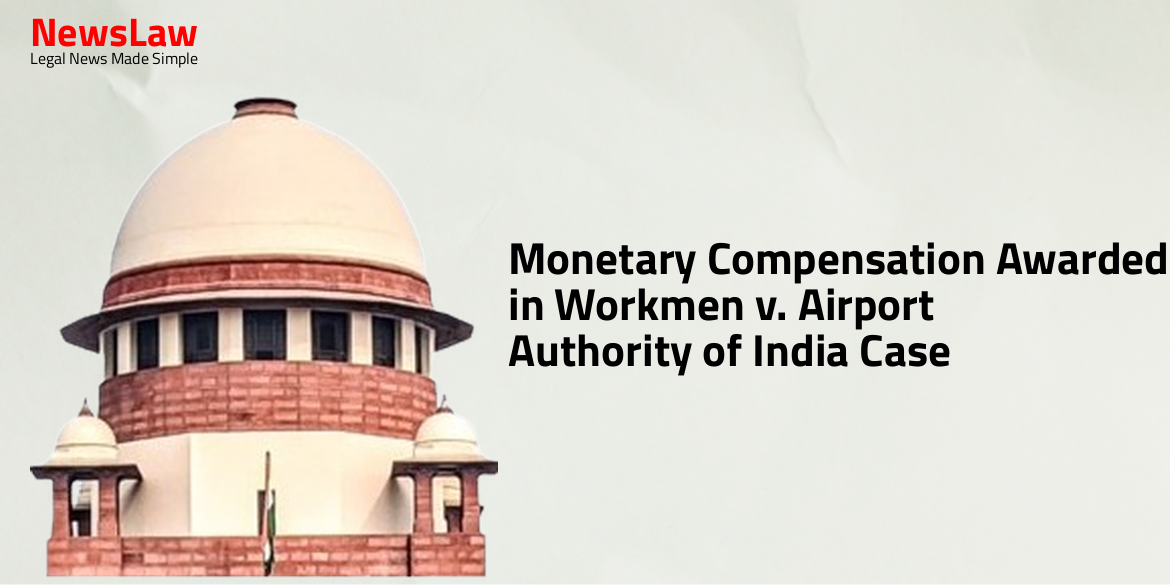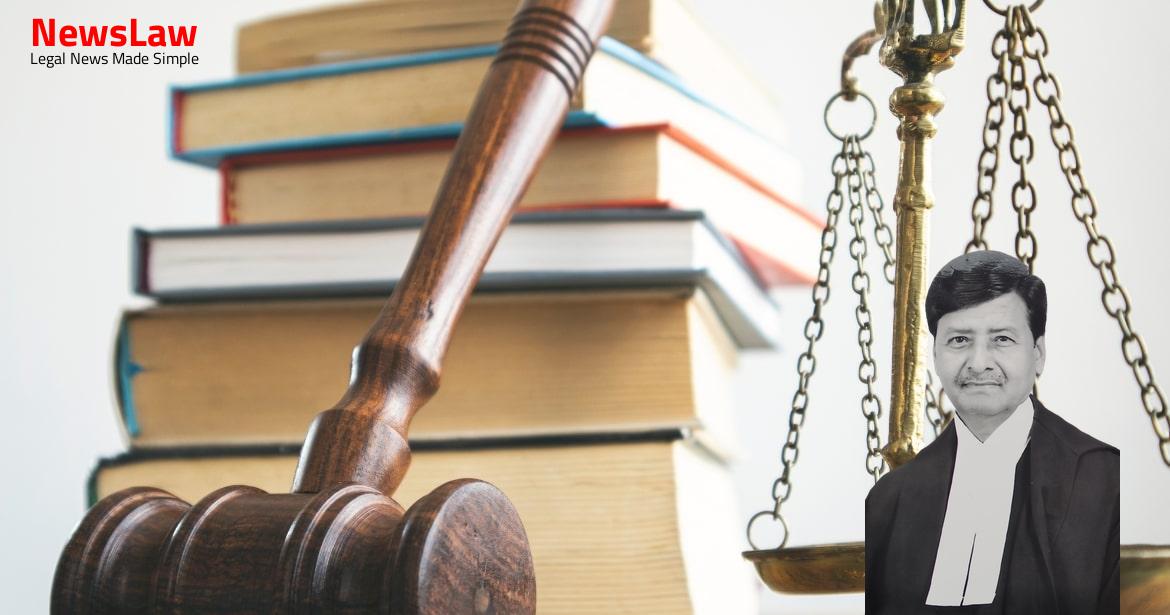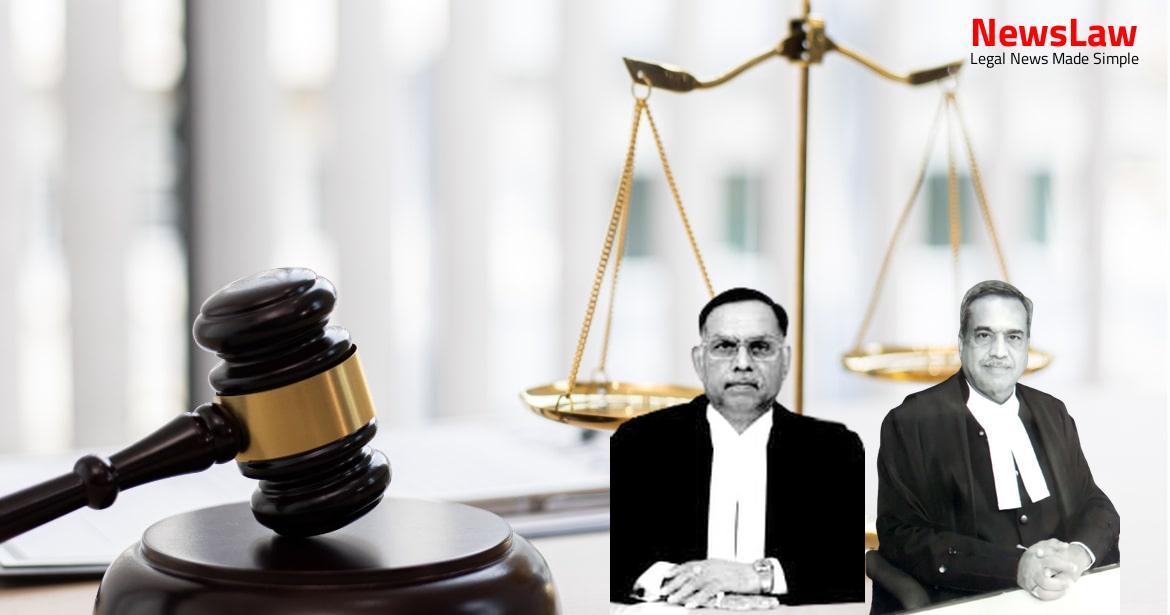Delve into the legal intricacies surrounding compassionate appointments and the recent court analysis on conditions related to descent. The case’s focus on the constitutional implications and the principle of non-discrimination in public employment offers valuable insights into the interpretation of Article 14 and Article 16 of the Constitution. This summary emphasizes the significance of fair and just practices in the context of compassionate appointments.
Facts
- Appellants filed an application before the Central Administrative Tribunal, Patna, which was dismissed on 19.07.2017.
- Appellant No.2 made a representation seeking the appointment of appellant No.1 under the scheme for appointments on compassionate grounds.
- A writ petition was filed before the High Court of Patna challenging the Tribunal’s decision based on two Madras High Court decisions which followed a Calcutta High Court decision.
- The High Court relied on the Namita Goldar case where a similar circular of the railways dated 02.01.1992 was quashed.
- The Division Bench of the High Court dismissed the writ petition.
- The order of the Division Bench was considered impugned.
- The specific part referred to in the request was not elaborated further in the provided text.
Also Read: Electoral Malpractices in Mayor Election
Issue
- The issue at hand is the legality of a condition set by the Railway Board that denies compassionate appointment to children of a deceased employee born from his second wife.
- This condition restricts compassionate appointments based on the marital status of the deceased employee, specifically regarding children born from a second marriage.
- The key question is whether such a condition is legally valid and justifiable in the context of compassionate appointments.
Also Read: Balancing Power and Transparency: Electoral Bonds Struck Down, Disclosure Mandated
Arguments
- Circular E(NG) II/2018/RC-1/5 dated 21.03.2018 states that a surviving widow can’t nominate illegitimate children for compassionate appointment if she doesn’t want to be considered.
- The judgment cited by the appellants only requires consideration of the application, not directed appointment.
- The High Court of Calcutta’s decision in Namita Goldar, approved by the Supreme Court in V.R. Tripathi, was also referenced.
- Union of India v. V.R. Tripathi ruled that a child of an employee’s second wife cannot be denied compassionate appointment based solely on this circular and policy.
- The respondent has argued that the appellant’s prayer for a direction for appointment cannot be granted.
- The respondent’s argument is based on the grounds that the appellant has failed to provide sufficient evidence to support the claim for appointment.
- Due to lack of evidence, the respondent concludes that there cannot be a direction for appointment as requested by the appellant.
Also Read: Recall of Resolution Plan Approval: Legal Analysis
Analysis
- Compassionate appointments must not discriminate on grounds mentioned in Article 16(2), including descent.
- The Railway Board circular creates unjust categories between legitimate children.
- Compassionate appointments are only permissible for dependents like spouse, son, or daughter.
- The issue of discrimination based on descent is covered by the judgment in Union of India v. V.R. Tripathi.
- The denial of compassionate appointment on the ground of descent is deemed discriminatory and in violation of the Constitution.
- The exclusion of children born from a second marriage from compassionate appointment is seen as disproportionate and offensive.
- The State cannot lay down conditions for compassionate appointment that violate Article 14 of the Constitution.
- Denying benefits to legitimate children based on their lineage is unconstitutional and violates the dignity of the deceased employee’s family.
- Descent cannot be a ground for denying employment under the scheme of compassionate appointments.
- Understanding ‘descent’ in terms of prohibiting discrimination fits within the principles underlying Article 16(2).
- Children of ‘second’ wives have often suffered severe social disadvantage and should not be denied public employment based on descent.
- Regulations denying compassionate appointments based on descent violate Article 16(2) as descent is beyond one’s control and leads to discrimination.
- Compassionate appointments on the sole basis of descent are impermissible.
- Appointments in public service should be based on open invitation of applications and comparative merit, in accordance with Articles 14 and 16 of the Constitution.
- Compassionate appointments are a recognized exception to the general rule if they serve the interest of justice and public policy considerations.
- Section 16 of the Hindu Marriage Act, 1955 considers a child born from a marriage while the earlier marriage is still existing as legitimate.
- It would be against Article 14 to exclude such a child from seeking compassionate appointment benefits.
- Compassionate appointment aims to prevent destitution in the family of a deceased employee.
- Any conditions imposed on compassionate appointments must be reasonably related to the objective of preventing destitution.
Decision
- Authorities entitled to scrutinize the application for compassionate appointment for fulfilling all requirements
- Consideration of application to be completed within three months from today
- Appeal allowed for appellant No.1, Shri Mukesh Kumar, to be considered for compassionate appointment
- Case to be considered according to extant policy despite being son of second wife
- Appeal allowed on the grounds mentioned
- Departmental appeal dismissed on 30.12.2015
Case Title: MUKESH KUMAR Vs. UNION OF INDIA GENERAL MANAGER (2022 INSC 229)
Case Number: C.A. No.-001620-001620 / 2022



